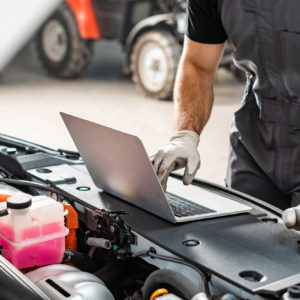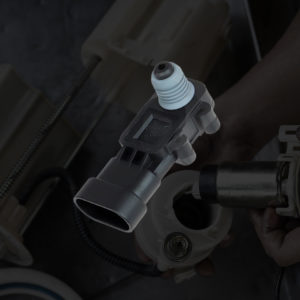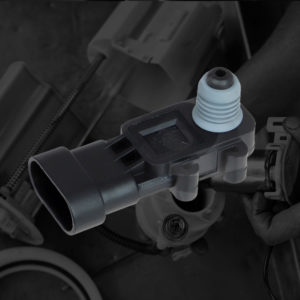Maintaining a vehicle through the winter months is undoubtedly more of a hassle than maintaining one during summer.
One season requires a bit of bug-repellent windshield wiper fluid, among other ways to address warm weather concerns. The other season needs you to keep an eye on your defrosters and fuel lines. Today, we’ll be tackling the latter.
When Does Fuel Freeze?
The freezing temperature of gasoline is between -40 and -200 degrees Fahrenheit, depending on the fuel’s exact type and included compounds. Most gasoline freezes at -100 degrees Fahrenheit. So while gasoline can freeze, you likely won’t need to worry about it unless winter is especially frigid.
However, if you run your fuel tank below half a tank all the time or near empty, water condensation will gather on the walls of the tank above the fuel level and then will settle into the bottom of the tank, where it’ll be picked up by the fuel filter and pumped through the lines. In this case, it may freeze at between 10 and 20 degrees ambient temperature, clogging the fuel line with water ice.
Note that gasoline is blended differently for winter than for summer.
Summer-blend gasoline has lower Reid vapor pressure RVP, which reduces evaporation in warmer temperatures and contains less butane than winter-blend gasoline to make it less volatile. Summer blend gasoline is more expensive to produce due to emission regulations.
Winter-blend gasoline is formulated with a higher RVP so that it evaporates easier in colder temperatures, which helps the engine start easier and run better while warming up. It is also formulated with a higher percentage of cheap, volatile butane. Winter-grade fuel is cheaper to produce and also helps prevent fuel line freezing.
As for diesel, it freezes at much higher temperatures, but tends to turn to gel in extremely low temperatures, which is why fuel manufacturers release summer and winter diesel blends.
Summer diesel blends can usually resist temperatures of 23 degrees Fahrenheit, while winter blends can go as low as 5 degrees Fahrenheit. Diesel gels when it reaches lower temperatures.
While this means you don’t have to worry about your vehicle’s fuel tank freezing over for the most part, freezing temperatures do still affect your vehicle’s fuel efficiency. At 23 degrees Fahrenheit, fuel efficiency is 10% lower than it is at 68 degrees.
Potential Fuel Issues in Cold Weather
The cold can cause trouble for the fuel-related mechanics in the vehicle. Here are some common fuel issues you could face during the winter months:
Thick Gasoline and Gelling Diesel
Cold liquids naturally become more viscous, and fuel is no exception. While oils are more prone to this issue than gasoline, thicker gas or gelled diesel forces your vehicle’s fuel pump to work harder, which shortens its lifespan.
Diesel will gel at higher temperatures, while gasoline will separate and gel in extremely cold environments. The more exposed the fuel is to the elements, the more likely it is to gel. That’s why fuel in a vehicle’s fuel lines is more likely to gel than fuel in the tank.
The increased fuel viscosity can cause issues in your vehicle’s fuel gauge. For diesel, the gelling also causes sluggish engine performance.
Frozen Fuel Lines
Frozen fuel lines are a rarity, but they do occur when water in the fuel line freezes. The water can be either vapor or condensation, and it can block the line and prevent fuel from entering the engine.
Most of the time, the alcohol in your vehicle’s fuel absorbs low amounts of water in the system to minimize these issues. But if your vehicle starts to sputter or cut out as you drive, doesn’t start, or doesn’t turn over, it’s likely due to a frozen fuel line.
Nonoptimal Operating Temperatures
All engines have an optimum operating temperature, and reaching that ideal can take much longer on freezing cold days. The engine will be running at nonoptimal operating temperatures for longer, which in turn makes it guzzle more fuel.
This issue is especially prevalent if you take a lot of short trips.
Increased Start-Up Idle Time
Another reason your fuel economy tanks during winter is the increased idle time you might need when starting up your vehicle. After all, you need to give it time to demist, defrost, and warm up.
Other Fuel-Affecting Aspects
There are a few other aspects of winter driving that will affect your vehicle’s fuel economy. For example, there’s increased aerodynamic drag from the dense winter air, which makes your engine work harder while powering the vehicle.
During winter, you’ll likely also use more electrical components, such as seat warmers and defrosters. On top of that, cold engine oil increases friction between engine parts, while your vehicle’s rolling resistance increases due to decreased tire pressure in colder temperatures.
How To Avoid or Solve Cold-Weather Fuel Problems
It’s best to avoid the more prominent cold-weather fuel issues when you can. Here’s how you can protect your vehicle against gelling fuel or frozen fuel lines in particular:
Consider Chemical Fuel Additives
Using chemical additives and antifreeze can help keep your fuel lines from freezing over in the winter.
The isopropanol or methanol in these additives works to absorb water in the fuel tank, which helps thaw existing ice and prevent more issues. These additives keep the water mixed with the fuel and reduce the freezing point. Note that isopropanol is safer and less corrosive, while methanol is effective but tends to damage rubber parts.
There are different additives out there, so make sure you check for compatibility before you pour the additive into your tank. Consult your vehicle’s owner’s manual for specific requirements.
Fill the Tank
Keeping your vehicle’s tank full minimizes the amount of air and moisture in the tank, which reduces water condensation risks. Less condensation lowers the risk of the fuel line freezing.
Pick Good Parking
Parking your vehicle in a garage or under cover can increase the ambient temperature outside your vehicle while it sits parked. This reduces fuel line freezing risks.
Go on Regular Winter Drives
Running your vehicle often prevents fuel from sitting in the tank or the fuel lines for too long. A trip around the block helps the fuel flow and warms the fuel up.
Warm Frozen Fuel Lines
If it’s too late and you find your vehicle’s fuel lines frozen, don’t fret. If your car won’t start, just hope it warms up and the fuel lines thaw out. Simply move your vehicle to a heated garage or other warm environment and allow it to thaw.
Caution: Do not use any kind of flame. A hair dryer or heat lamp helps, but you need to know where the frozen parts of the lines are. You might have a friend help push the vehicle into a garage or other closed structure where cars are permitted.
In the end, keeping your fuel lines in order during winter shouldn’t be much of a struggle. Just keep an eye on those fuel levels, park in a cozy spot, and remember to change out your summer diesel for winter diesel if you drive a diesel vehicle. At least you now know that while gas does freeze, it’s not something you should worry about too much.
Where to Get High-Quality Fuel System Components for Your Car
Get your vehicle back on the road in no time by replacing faulty fuel system components as soon as your mechanic recommends it. Visit CarParts.com or download our mobile app to experience a convenient and secure shopping experience with just a few clicks.
Choose from parts sourced from some of the top manufacturers in the industry. Use our vehicle selector to check for fitment and toggle our search filters to shop according to your preferred brand or price range.
Place your order before noon EST and get your package in as fast as two business days!
Any information provided on this Website is for informational purposes only and is not intended to replace consultation with a professional mechanic. The accuracy and timeliness of the information may change from the time of publication.





















